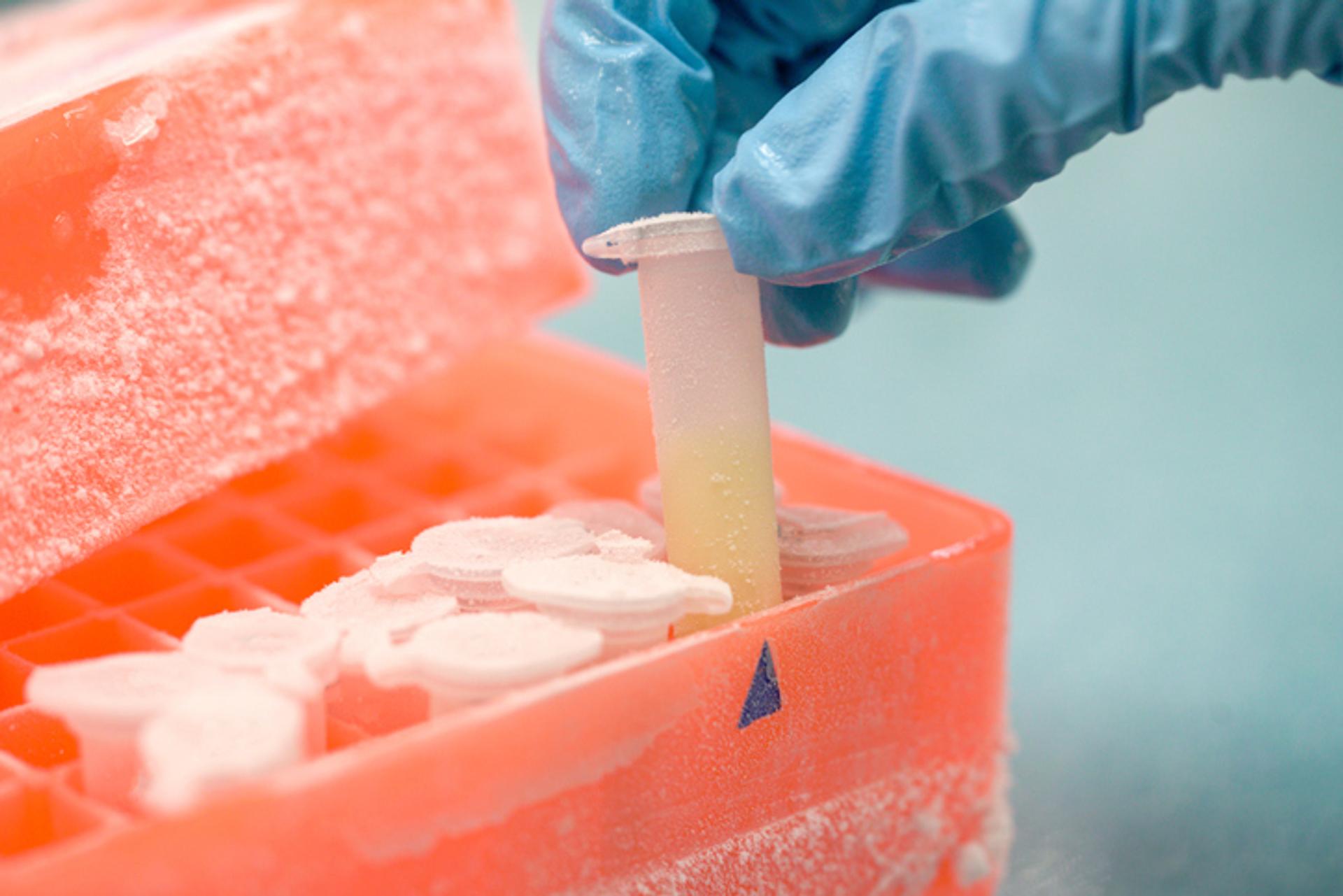The Biorepository Study for Neurodegenerative Diseases

Learn more about IND’s ongoing biorepository research study and existing challenges that can limit the rate of progress.
IND is in the midst of an exciting clinical research study aimed at identifying novel biomarkers and treatment strategies for detecting and preventing neurodegenerative disease. The Biorepository Study for Neurodegenerative Disease (BioRAND) is collecting blood samples from a broad spectrum of participants - asymptomatic individuals with a family history of Alzheimer’s, Parkinson’s, or Lewy body dementia, individuals with mild cognitive impairment, and controls with no family history of neurodegenerative disease. Study participants, under the care of their respective physicians, are being treated for their specific risk factors related to brain and vascular health.
As participants adhere to these individualized care plans, their blood is drawn longitudinally to track changes over time. The findings from this research will eventually enable widespread preventative approach to neurodegenerative disease.
The expense of scientific research
However, the costs of discovery are not low. Multiple blood draws are being conducted on over 100 participants, from which over 100 different proteins are being measured. Every blood sample must be collected by a phlebotomist, stored in an ultra-low temperature (ultra high-cost) freezer, and then processed and run by scientists on an expensive state of the art proteomics platform. Once the data are collected they must undergo complicated statistical analyses for proper interpretation of the findings, which then must be written into a scientific manuscript for publication. The costs of highly-trained personnel, laboratory space and equipment, and more are exorbitant.
Dr. Isaacson explains:
"The good news is we're funded for a hundred patients basically, but we don't have full funding for all the statistical work, the manuscript writing. This stuff takes a lot of time. Statistics are super expensive. The big data aspect is really confusing and costly. And again, per hour is very costly. Long story short, if our resources are sufficient, we're going to bang out a lot of good data sooner."
Unlike university or industry research programs, IND is primarily funded by philanthropy. Individuals who are passionate about IND’s mission are able to directly support their research efforts and broaden the impact and speed of the work. Dr. Isaacson shares that, “the more research funding we get, the more people we can recruit [to participate in the study].”
The U.S. “sick-care” system
Despite growing scientific evidence behind the benefits of early intervention to minimize Alzheimer’s risk factors, the United States healthcare system is not currently configured to support these efforts.
Dr. Isaacson explains that there are currently no billing codes for health insurers to reimburse for dementia prevention:
"Right now, doctors can't even get paid for this type of care. There's no codes. We live in a sick care system. Not a healthcare system. Doctors get money from insurance companies and Medicare when they treat a problem, when someone has memory loss or someone has diabetes or someone has, I don't know, something bad. Not when someone wants to reduce their risk or try to protect themselves from getting a disease. There's no diagnostic code for that. Our medical system is broken, unfortunately."
Until there is a substantial shift in how the U.S healthcare system operates, preventative neurology care will largely be delivered in experimental studies or with excessive out of pocket costs. However, Dr. Isaacson emphasizes that IND is trying to democratize access. He states,“100 people getting this type of care...that’s not enough. That’s not fair. We need to do better. And that’s really the goal of this.” IND is working toward developing low cost at home tests that would be accessible for all.
Take control of your brain health
Fortunately, there are many measures outside of taking part in a research study that can be implemented to foster high quality brain health. Dr. Isaacson reminds us that we are all in some degree of control over the health of our brains. He adds that “four out of every ten cases of dementia may be preventable if that person does everything right. We’re not powerless.”
IND's free Mastering Brain Health course provides a wealth of information about changes you can make to your diet and nutrition, supplementation, physical exercise, stress management, and more to reduce your risk of neurodegenerative disease.
To learn more about IND’s ongoing clinical research and how you can support their endeavors, watch our conversation with Dr. Richard Isaacson in the video above.
By Alicia J. Barber, PhD
-
Disclaimer
The Video and Written Educational Content included on this site is not intended to be a substitute for professional medical advice, diagnosis, or treatment. Always seek the advice of your physician or other qualified health provider with any questions you may have regarding a medical condition. Never disregard professional medical advice or delay in seeking it because of something you have read or seen on the Site.
The information contained in the Educational Content posted represents the views and opinions of the individual in the recording and does not necessarily represent the views or opinions of IND. The mere appearance of Educational Content on the Site does not constitute an endorsement by IND or its affiliates of such Content.
The Educational Content has been made available for informational and educational purposes only. IND does not make any representation or warranties with respect to the accuracy, applicability, fitness, or completeness of the Content. IND does not warrant the performance, effectiveness or applicability of any sites listed or linked to in any Content. IND hereby disclaims any and all liability to any party for any direct, indirect, implied, punitive, special, incidental or other consequential damages arising directly or indirectly from any use of the Content, which is provided as is, and without warranties.